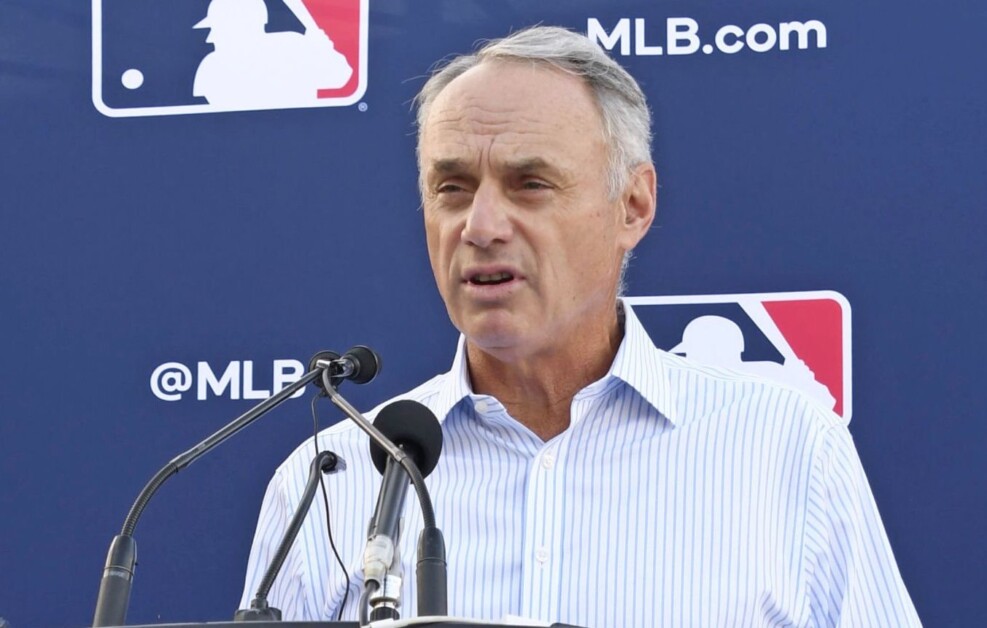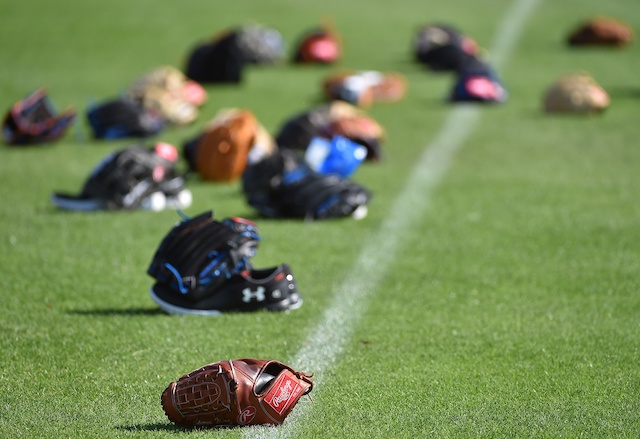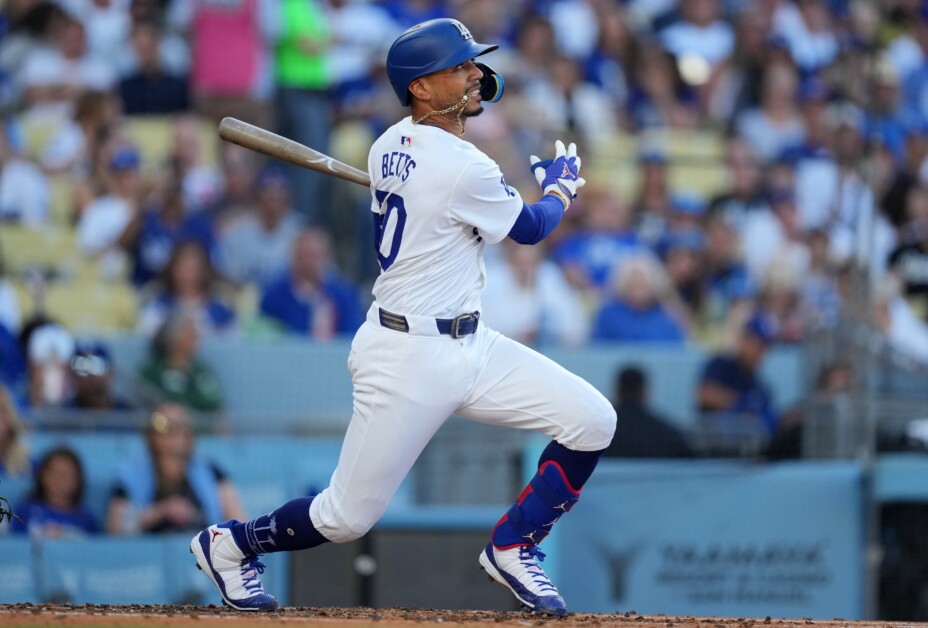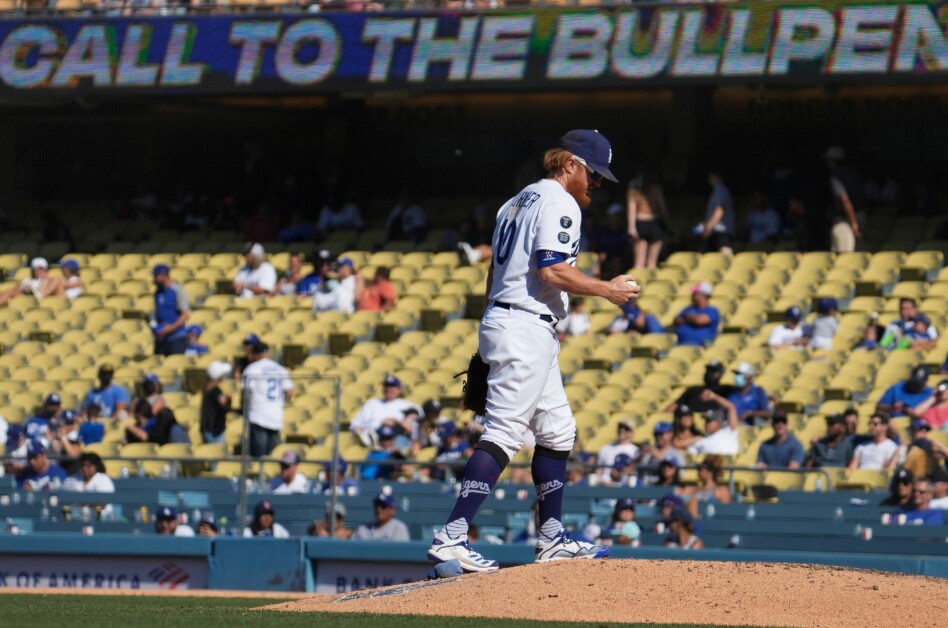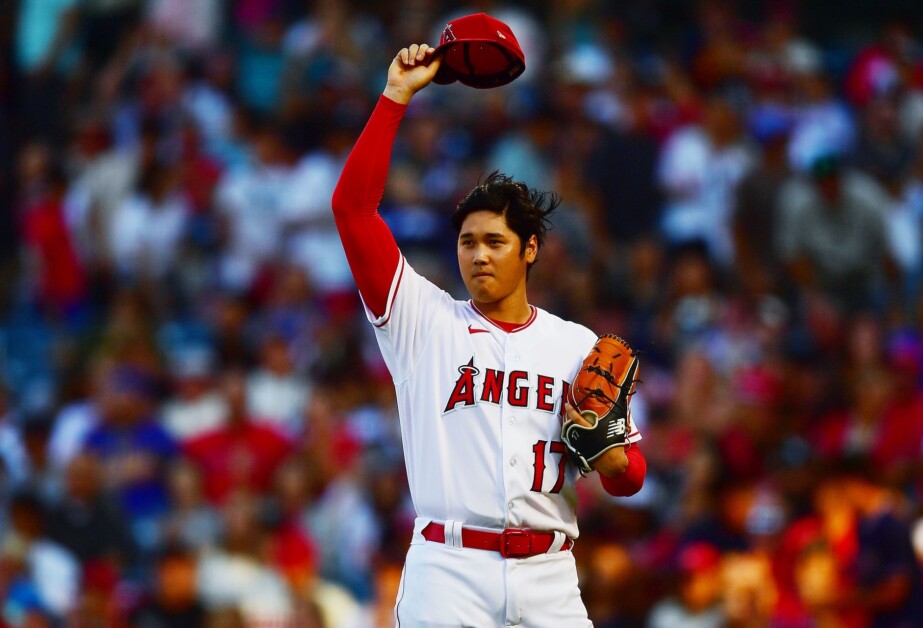MLB commissioner Rob Manfred addressed the media following the passing of the self-imposed deadline between the league and Players Association (CBA) for reaching a new collective bargaining agreement, during which he canceled Opening Day and additional regular season games.
Like when team owners unanimously voted in December to impose a lockout, Manfred additionally wrote an open letter to fans. “This is a historic, yet unfortunate event for MLB’s future and present. The lockout will continue and talks will reportedly be stalled for at least some time,” he said in the statement.
“Something important to note here is that games have been cancelled exclusively by the league. MLBPA never requested any work stoppage, but MLB has followed through with their threat of cancelling games to jeopardize the 2022 season’s integrity.
“I had hoped against hope that I would not have to be in the position of canceling games. We worked hard to avoid an outcome that is bad for our fans, bad for our players and bad for our clubs. I want to assure our fans that our failure to reach an agreement was not due to a lack of effort on the part of either party. The Players came here for nine days, worked hard and tried to make a deal. I appreciate their effort.
“Our committee of Club representatives committed to the process, offered compromise after compromise, and hung in past the deadline to exhaust all efforts to reach an agreement. So far, we have failed to achieve our mutual goal of a fair deal. The unfortunate thing is that the agreement we have offered has huge benefits for fans and players.
“We have listened to the Players Association throughout this process. A primary goal of the Players Association has been to increase pay for younger players. As I have said previously, we agree and share that goal. We offered to raise the minimum salary to $700,000, an increase of $130,000 from 2021.
“We offered to create an annual bonus pool of $30 million for the very best young players. In total, we are offering a 33% raise to nearly two-thirds of Major League players and adding more than $100 million annually in additional compensation for younger players.
“The proposal also addressed player and fan concerns about issues like service time and competitive issues. Baseball would for the first time have a draft lottery — the most aggressive in professional sports. Also, for the first time ever, we agreed to an incentive system to encourage clubs to promote top prospects to their Opening Day rosters. We also proposed that the first and second-place finishers in the Rookie of the Year voting in each league would receive a full year of service.
“The MLBPA asked to make free agency more robust. For the first time ever, we agreed to eliminate direct draft pick compensation, a change the MLBPA has sought for decades. On the Competitive Balance Tax, we offered a significantly larger first-year increase than in the last two agreements, bearing in mind that the Competitive Balance Tax is the only mechanism in the agreement that protects some semblance of a level playing field among clubs.
“The International Draft would have more fairly allocated talent among the clubs and reduced abuses in some international markets.”
“We also listened to our fans. The expanded playoffs would bring the excitement of meaningful September baseball and postseason baseball to fans in more of our markets. While we preferred a 14-team format, when the format became a significant obstacle, we listened to the players’ concerns, and offered to compromise by accepting their 12-team format.
“Finally, we offered a procedural agreement that would allow for the timely implementation of sorely needed rules like the pitch timer and elimination of shifts to improve the entertainment value of the game on the field. And we agreed to the universal DH.
“So, what is next? The calendar dictates that we are not going to be able to play the first two series of regular season games and those games are officially canceled. We are prepared to continue negotiations. We have been informed that the MLBPA is headed back to New York meaning that no agreement is possible until at least Thursday. Currently, camps could not meaningfully operate until at least March 8th, leaving only 23 days before scheduled Opening Day.
“We played without an agreement in 1994 and the players went on strike in August, forcing the cancellation of the World Series. It was a painful chapter in our game’s history. We cannot risk such an outcome again for our fans and our sport.
“The Clubs and our owners fully understand just how important it is to our millions of fans that we get the game on the field as soon as possible. To that end, we want to bargain and we want a deal with the Players Association as quickly as possible.
The latest developments and acrimony between the two sides has the 2022 MLB season in serious jeopardy. While Manfred tried to assuage the public’s fear of a dramatically impacted schedule, one can only hope both sides operate in good faith as the stakes get higher.
MLB wanted rule changes part of new CBA
MLB was requesting rule changes to the current rulebook be instituted as CBA negotiations neared the deadline. Chief among them was banning defensive shifts altogether in conjunction with an enhanced pitch clock and larger bases.
Shifting has been a new-era staple of the game and its exclusion could have serious impact on facets of the sport like free agency. Pitch clocks have proven effective on the Minor League level to this point, but enhancing them by lowering the amount of time could have serious backlash from pitchers.
Larger bases are an interesting proposition, but they could prove beneficial as the league looks to make the playing environment as safe as possible.
Have you subscribed to the Dodger Blue YouTube channel? Be sure to ring the notification bell to watch player interviews, participate in shows and giveaways, and stay up to date on all Dodgers news and rumors!



